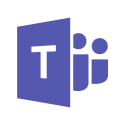
Remote Agility Redefined: Free Remote SCRUM Guide for Seamless Agile Operations

Since the digital surge of the COVID-19 pandemic, remote work has swiftly transitioned from a niche concept to a mainstream practice, growing by 44% in five years. Over this period, we've witnessed an unprecedented surge in remote work adoption, driven by technological advancements and pandemic restrictions.
This shift has reshaped how teams operate, collaborate, and deliver value, underscoring the need for effective methodologies supporting this new work mode. This is how the new term, remote agility, was born.
Remote agility is a transformative approach that integrates the core principles of agile, such as adaptability and continuous improvement, with the unique demands of remote work, such as communication barriers and time zone differences.
The Benefits of Agile Practices for Remote Teams
Applying agile methodologies to remote teams offers substantial advantages, particularly in enhancing communication, flexibility, and productivity. Agile practices such as regular stand-up meetings and transparent project management tools improve communication by ensuring team members stay connected and informed, regardless of location.
This transparency fosters a culture of accountability and collaboration, which is essential for remote work. Agile methodologies empower teams with flexibility, allowing for iterative development and adaptive planning. This capability to respond to changes and prioritize tasks swiftly ensures that remote teams are in control, able to pivot as needed and maintain alignment with shifting project goals. This sense of control and capability can significantly boost team morale and productivity.
Moreover, agile methodologies boost productivity by setting clear, achievable goals and establishing regular progress assessments and feedback checkpoints. These structured yet flexible approaches enable remote teams to maintain focus, streamline their workflows, and consistently deliver high-quality results, ensuring they remain aligned and productive in a distributed work environment.
Remote Challenges and How Agile Solves Them
Remote work, while offering unparalleled flexibility, introduces a set of unique challenges that can hinder team productivity and cohesion. Common issues include communication barriers, difficulty tracking colleague availability, inconsistent progress reporting, time zone differences, and feelings of isolation.
Agile methodologies effectively address these hurdles through practices such as regular meetings, iterative feedback, and clearly defined workflows. Daily stand-ups and sprint reviews foster open communication and ensure all team members are aligned, regardless of location. Iterative feedback loops promote continuous improvement and timely problem-solving, while tools like agility cards enhance transparency in progress tracking.
Agile's emphasis on collaboration helps bridge time zone gaps by accommodating asynchronous meetings, allowing diverse teams to contribute effectively. This mitigates isolation and leverages the benefits of global talent, ultimately leading to increased productivity, seamless collaboration, and a higher volume of completed projects.
Through agile practices, remote teams can turn potential obstacles into enhanced performance and innovation opportunities.
Key Agile Ceremonies for Remote Agility
Agile practices are indispensable for remote teams striving to maintain synchronization and efficiency. Daily stand-ups, sprint planning, and retrospectives form the backbone of these practices, ensuring continuous alignment and progress.
Sprint planning involves setting clear goals and outlining the upcoming sprint's tasks, usually lasting two weeks. During this meeting, the team discusses priorities, assigns responsibilities, and estimates effort, ensuring everyone knows what to focus on. Implementing sprint planning involves gathering the team at the start of each sprint and using tools like digital backlog management software to organize tasks and deliver projects within the agreed timeline.
Daily stand-ups are brief, focused meetings where team members share updates on their progress, upcoming tasks, and any obstacles. This daily check-in keeps everyone aligned and aware of each other's activities, fostering a cohesive team dynamic despite physical distances. You can implement it by scheduling a consistent time slot, ideally during overlapping work hours, and keeping discussions to 15 minutes. This regular interaction fosters a sense of belonging and collaboration, making remote team members feel connected and part of a cohesive unit.
Retrospectives are reflective meetings held at the end of each sprint to discuss what went well, what didn't, and how processes can be improved. This practice promotes a culture of continuous improvement and learning. Teams can implement retrospectives by creating a safe space for open dialogue, encouraging honest feedback, and collaboratively identifying actionable improvements.
These agile practices can help remote teams stay synchronized, maintain high efficiency, and continuously improve their workflows, resulting in better outcomes and more cohesive collaboration.
The Role of Technology in Remote Agility
Technology enables remote teams to thrive under agile methodologies, providing the essential tools and platforms that facilitate seamless communication, efficient project management, and robust collaboration.
Communication platforms like Microsoft Teams and Slack offer real-time messaging, video conferencing, and integration capabilities, ensuring team members stay connected and informed.
Project management tools such as Jira, Asana, and Linear are indispensable for tracking progress, managing tasks, and visualizing workflows, making planning sprints, assigning responsibilities, and monitoring outcomes easier.
These technologies support agile practices like daily stand-ups, sprint planning, and retrospectives and enhance overall productivity by streamlining processes and fostering a collaborative environment.
With the help of these tools, remote teams can maintain the agility needed to adapt quickly to changes, stay aligned on goals, and deliver high-quality results consistently.
Introducing the Free SCRUM guide for Remote Agility
The remote SCRUM guide by Team O'Clock is an invaluable resource tailored to help remote teams adopt and refine agile practices effectively. This comprehensive guide is a blueprint for implementing SCRUM, a widely recognized agile framework known for its simplicity and effectiveness in fostering a culture of continuous value delivery through inspection and adaptation.
Especially beneficial for remote teams, the guide offers step-by-step instructions and tried-and-tested practices for both synchronous and asynchronous meetings, ensuring that teams remain cohesive and productive despite physical distances.
What’s Included in the Remote SCRUM Guide?
Key features of the SCRUM guide include detailed guidance on conducting essential SCRUM ceremonies such as daily stand-ups, sprint planning, and retrospectives in a remote context. The guide provides clear, actionable steps and best practices to ensure these meetings are efficient and effective. Additionally, it emphasizes the importance of tool-agnostic strategies, allowing teams to apply the principles using their preferred communication and project management platforms, such as Microsoft Teams, Slack, Jira, or Asana.
Unique aspects of the guide include its focus on fostering a remote-friendly agile culture and its wealth of insights derived from real-world applications and collaborations. By leveraging this guide, remote teams can build the habits necessary to establish a cadence of continuous value delivery, overcoming distance challenges to achieve seamless collaboration and exceptional outcomes.
Get started with the Free Remote SCRUM guide and enhance your team's communication, flexibility, and productivity with simple steps and clear instructions.

More articles to check

Assist your team's growth with our partnership program:








